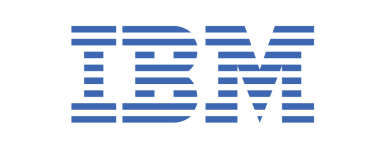
In the 30th episode of IIA’s Leading Analytics podcast, IIA CEO Jack Phillips chats with Inderpal Bhandari, Global Chief Data Officer for IBM, a company deeply rooted in the data, analytics, and technology world. When Bhandari started at IBM six years ago, the role of AI from an enterprise standpoint was not clear to many B2B companies. IBM set out to infuse AI into its own business processes and then use what they learned to showcase to customers, be a voice of experience, and help customers avoid pitfalls. Bhandari observes that to infuse AI into an enterprise, it requires a holistic transformation that involves technology, data, IT, and business processes.
Describe your title and role.
I'm the Global Chief Data Officer (CDO) at IBM. IBM wanted to create a data pillar to drive its digital transformation journey, so that fell on me to create that data organization. Specifically, IBM planned to become a cloud and AI company. From an enterprise standpoint, it wasn't clear what AI meant. People understood AI from a consumer standpoint, thanks to the likes of Google and Amazon, but they did not understand it in the enterprise context.
What is AI for the enterprise? If you are going to be a cloud and AI company, you have to know that. Our data strategy focuses on creating an AI enterprise within IBM itself, because we look a lot like our major B2B customers. We use that as a showcase for our clients and customers. I spend 50% of my time on internal operations, infusing AI into our business processes, and the other 50% using what we've done internally to showcase our work.
Does showcasing your internal capabilities put pressure on you to perform at a high level, to walk the talk?
It does. What works well to manage that pressure is to operate with the utmost transparency. We are there to share our experience and what we've gone through, including the hiccups and failures, to help our clients and customers avoid those situations, as well as to help them understand the potential.
How far along are we in terms of awareness among enterprises of the importance of data?
There's an incredible amount of awareness of the strategic importance of data, and also the need for leadership to develop that to its potential. The CDO role is definitely here to stay. It's established at the C-suite level.
What are four or five important qualities and behaviors of analytics leaders?
- Think strategically. This includes the ability to articulate a strategic position in a clear, compelling fashion, so that you can operate at the C-suite level. At the boardroom level, it's a collaborative effort, and you have to be able to get along with your peers.
- Change agent. Acting as a change agent is critical if you're in a digital transformation role. You're making changes to the business processes to impact the business.
- Empower employees. This goes to creating a culture of change in the organization. Your whole organization has to act as a change agent.
- Understand technology and data. For data, you need to know its readiness and quality.
- Business process innovation. It's not just about algorithms or what you're implementing, but how do you actually change the way people work to best advantage.
How do you define performance and success when it comes to analytics?
At the beginning of every year, we put together a scorecard. The scorecard includes aspects about impacting the top-line revenue growth. This could be sales enablement or finding insights in competitive situations and so on. There are also items that go to the bottom line, which is improving operations related to infusing AI into business processes. For example, reducing end-to-end cycle time by X percent, which leads to savings and efficiencies. The third piece is risk reduction, because there's risk associated with data.
What advice would you give to aspiring analytics professionals?
- Move fast. This is a fast-moving field, so understanding this concept is helpful in navigating the waters. It's fast moving along four dimensions: technology, data, business process innovation, and culture/organization change.
- Have a wide reading list. If you focus too much in one area, you're probably better off doing a job that's more specialized as opposed to a job at the CDO level.
- Cultivate contacts. There are always people who know more than you do about specific aspects of those four dimensions. Those people change because things change. Keep track of those folks so you can learn from them.
- Keep up with the startup space. You'll be surprised at how talented some of those people are. I tend to find a lot of learning by talking to those folks.
For more insights from Inderpal, listen to the full podcast.